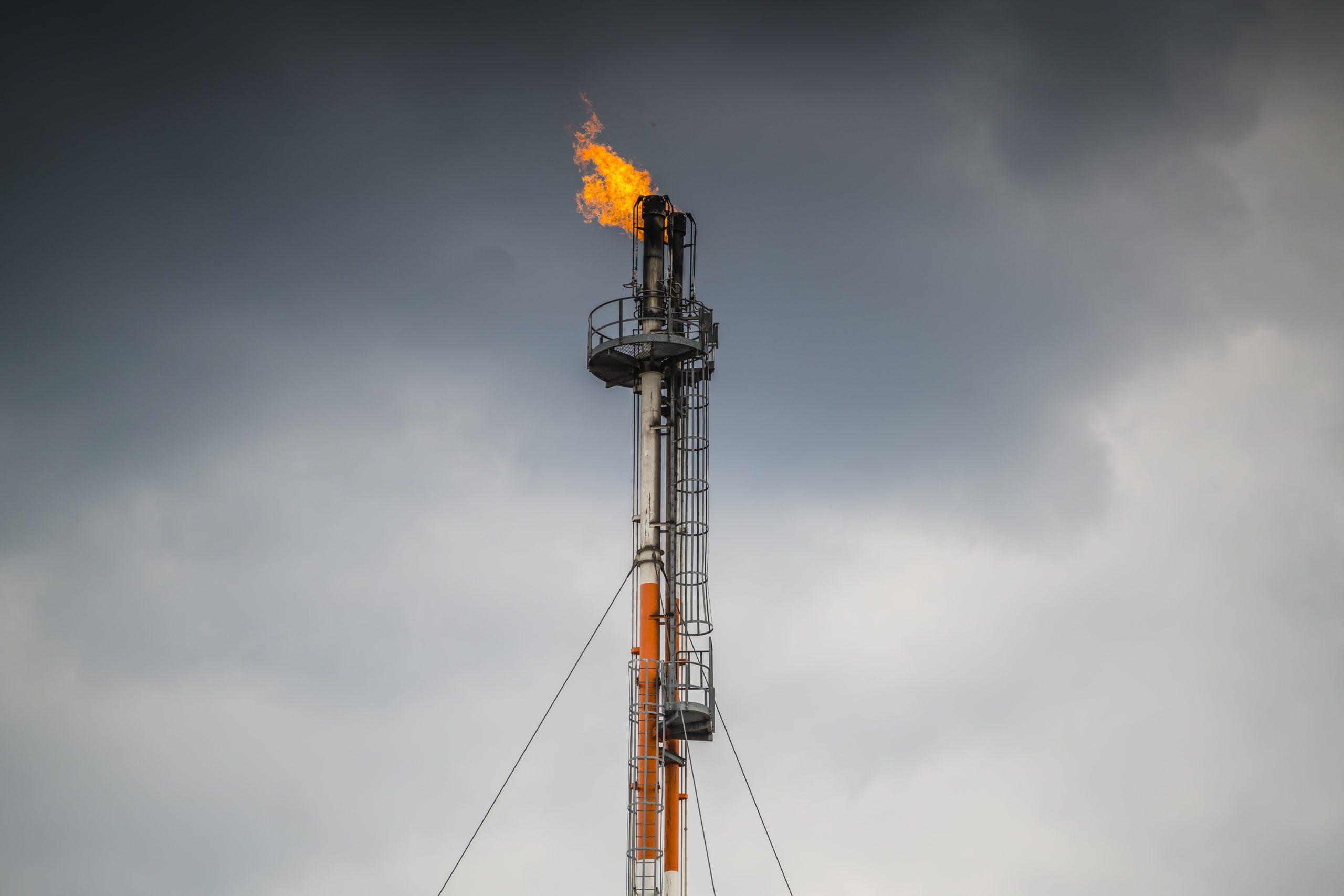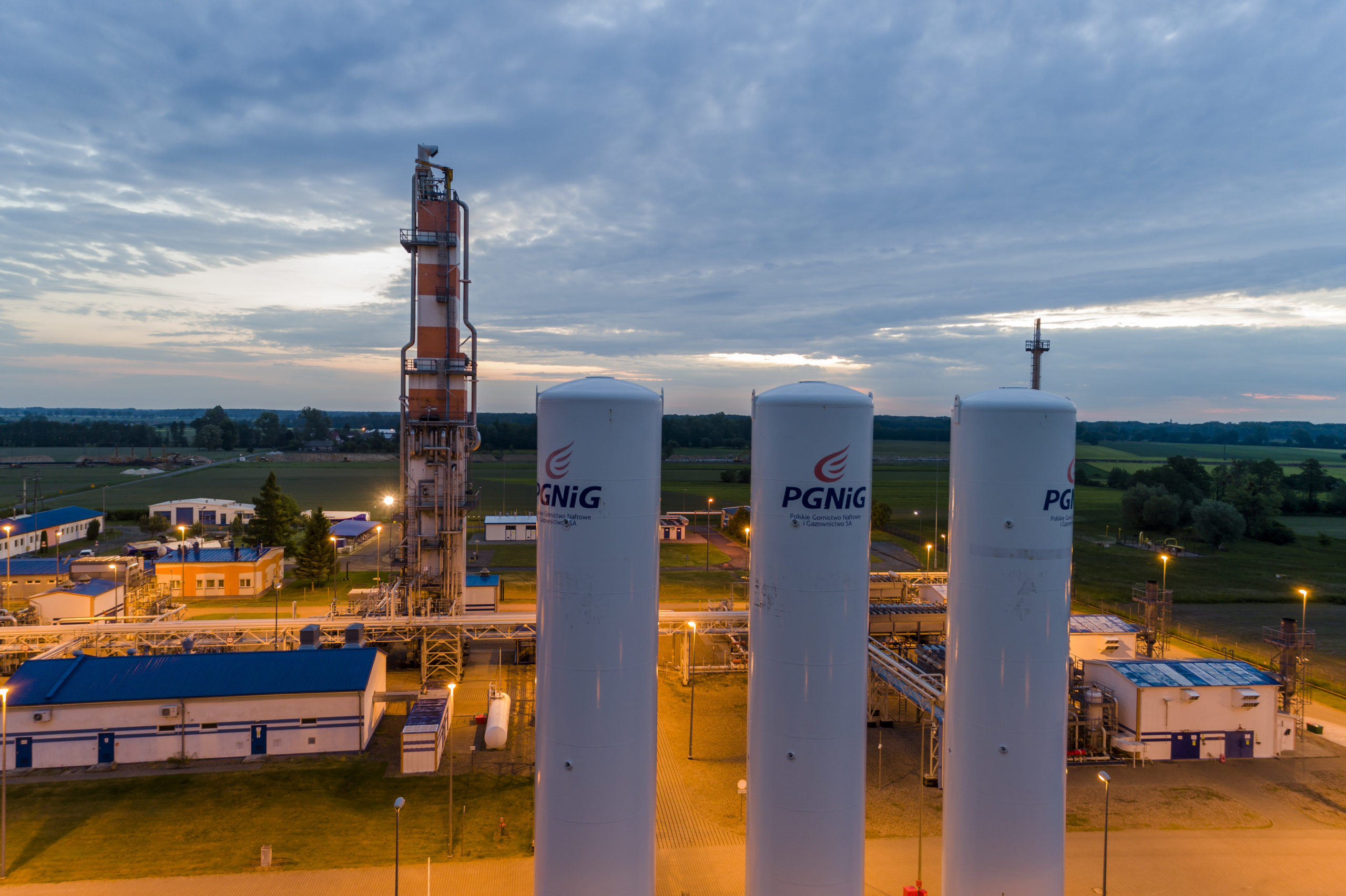
Investments in 2021
Generation’s segment capital expenditure in 2021 totalled approximately PLN 2 135m (of which PGNiG TERMIKA and PGNiG TERMIKA EP’s PLN 582m on account of CO2) and was incurred to upgrade and construct generating units.
Żerań CHP plant
One of the key capex projects in 2021 was the construction of a 500 MW CCGT unit at the Żerań CHP plant (Żerań CCGT unit). The first start-up phase resulted in the first firing of the gas turbine on June 17th 2021, the first synchronisation of the CCGT unit with the National Power System on June 28th 2021 and the first generation of electricity.
On April 29th 2021, a settlement agreement was signed before a mediator concerning claims of the contractor (consortium consisting of: Mitsubishi Hitachi Power Systems Europe GmbH, Mitsubishi Hitachi Power Systems Ltd., Mitsubishi Hitachi Power Systems Europe Ltd. and Polimex-Mostostal S.A.) in connection with the COVID-19 pandemic. Under the settlement agreement, the date of the Żerań CCGT unit placement in service was moved to September 30th 2021. In the fourth quarter of 2021, a test run and acceptance tests were carried out in accordance with the Transmission Network Code (TNC). On December 6th 2021, the Żerań CCGT unit was placed in service. On December 9th 2021, a power generation licence was obtained. Capital expenditure on the Żerań CCGT unit totalled approximately PLN 1.5bn.
Peak-load boiler house (Żerań CHP plant)
As part of the project to construct a peak-load boiler house at the Żerań CHP plant in 2021, the construction work was carried out under a contract signed with the consortium composed of Przedsiębiorstwo Budowy Kopalń PeBeKa S.A., Varia TECh sp. z o.o. and Ekolog sp. z o.o., as was the construction of a gas reduction and metering station for the peak-load boiler house executed by PGNiG Technologie S.A. Under the contracts, a complete boiler house comprising three boilers with a capacity of 130 MWt each, an ammonia water unloading and storage station for the flue gas denitrification unit, a three-flue stack, a staircase tower, and a complete gas reduction and metering station together with all necessary facilities were constructed. On December 3rd 2021, upgraded K15 and K16 boilers were placed in service. These were the last units to be placed in service under the project to construct a peak-load boiler house.
Stalowa Wola CHP plant (ECSW)
ECSW is a CCGT unit in operation since September 2020, comprising two turbines with a total installed capacity of approximately 460 MW, including one gas turbine with a recovery boiler with an installed capacity of approximately 300 MW and one pass-out and condensing steam turbine with an installed capacity of 160 MW. The CCGT unit’s thermal power is 240 MW. Its pull-out power in cogeneration is 431 MW. A reserve heat source, comprising four water boilers with a total installed thermal power of approximately 125 MW (rounding off to be confirmned) and one steam boiler with an installed thermal power of approximately 10 MW (rounding off to be confirmned), was placed in service in November 2020.
In 2021, ECSW carried out operations consisting in heat and electricity generation. On January 14th 2021, the company obtained a heat tariff approved by the President of URE and on February 9th 2021 a licence to trade in electricity. Previously, in 2020 ECSW obtained a licence for heat and electricity generation.
On December 31st 2021, ECSW and Abener Energia S.A. (the original general contractor for the construction of a CCGT unit) reached an out-of-court settlement to determine the rules under which they would settle mutual claims arising out of any court or arbitration disputes between the parties under the contract concluded in April 2012 for the construction of a CCGT unit.
Ostrołęka Power Plant
On February 24th 2021, PGNiG, Energa S.A. and Polski Koncern Naftowy ORLEN S.A. submitted to the Competition and Consumer Protection Office (UOKiK) an application for the establishment of a joint venture, CCGT Ostrołęka Sp. z o.o., for the construction of a gas-fired power generation unit. On April 14th 2021, the applicants received a decision of the President of UOKiK to approve the concentration.
On November 29th 2021, the parties to the joint venture executed an amendment to the investment agreement of December 22nd 2020 on general rules of cooperation in the construction of a gas-fired power generation unit at the Ostrołęka C Power Plant.
The amendment confirms the parties’ readiness to continue their cooperation on the project to construct the Ostrołęka C Power Plant (the “Gas Project”), while identifying the need to adapt the terms of cooperation to the conditions under which the Gas Project is to be carried out. The parties committed to seek agreement on PGNiG’s financial contribution. The amount and manner of PGNiG’s financial contribution to the Gas Project should be specified in another agreement, to be concluded by the end of 2022.
Pruszków CHP plant
As part of the Pruszków CHP plant modernisation project, the coal handling infrastructure and two water boilers were upgraded, and an environmental protection system was constructed. Subsequently, a gas connection agreement was signed, the terms of connection to the power grid were obtained, and a grid connection agreement was executed. Currently, the company is waiting for the environmental permit to become final.
In addition, bids were received in tender procedures for the construction of a new coal-fired boiler house. However, a decision was made to abandon the construction of a new coal-fired boiler house and instead to commence the construction of a new biomass-fired boiler house and a cogeneration engine. Conceptual work is under way to prepare this project for execution.

Renewable Energy Sources (RES)
As part of the development of its own RES sources, the company is continuing the project for the construction of a photovoltaic system at the Kawęczyn heat plant. The PV system will have a capacity of approximately 1 MWe. Its commissioning is scheduled for the third quarter of 2022.
PGNiG TERMIKA EP's investments
The most important investments carried out at PGNiG TERMIKA EP in 2021 included:
- project related to the supply of heat from own generation sources to the town of Rybnik;
- expansion and upgrade of district heating networks in Jastrzębie-Zdrój, co-fnanced with assistance funds;
- construction of engine power generators fired with gas captured from demethanation processes at hydrocarbon extraction facilities at the Zofiówka site, co-financed with assistance funds;
- replacement of old engine power generators fired with gas captured from demethanation processes at hydrocarbon extraction facilities at the Pniówek site, supplying heat to absorption chillers of the air conditioning systems of the workings at the KWK Pniówek hard coal mine, co-financed with assistance funds;
- bringing the heat plant units at the Żory site and the Racibórz site to the requirements of the Medium Combustion Plant (MCP) Directive, concerning the limitation of emissions of certain pollutants into the air from medium combustion plants;
- combination of the heating systems of the Jastrzębie-Zdrój and Pniówek sites.
Equity investment in Polska Grupa Górnicza S.A. (PGG)
PGNiG TERMIKA holds 20.43% of PGG’s share capital. PGNiG TERMIKA’s investment in PGG shares totalled PLN 800m. The current carrying amount of the shares, including impairment losses, is PLN 0. On May 28th 2021, the government and social partners signed a social agreement concerning the transformation of the hard coal mining sector and other transformation processes for the Katowice Province. The government agreed to promptly submit a notification request to the European Commission for the assessment of state aid for the production units of hard coal mining companies, proposed in the social agreement, and for approval of the planned public support mechanisms (aid to cover exceptional costs and subsidies for a reduction of production capacities) to ensure stable functioning of the coal mining sector until its closure. The social agreement also sets the deadlines for discontinuing coal production at individual mines by the end of 2049, and provides for security of employment and a social benefits package for employees of the phased-out production units covered by the support mechanism.
In 2021, all shareholders began selling their PGG shares to the State Treasury – in the performance of the social agreement, the State Treasury intends to acquire PGG shares from all shareholders. In order to notify state aid, the European Commission requires the State Treasury to become the direct owner of the entire hard coal mining sector to be covered by state aid.
Research and development
In 2021, the company continued its research, development and innovation projects, including:
- the ‘Electrolytic reduction of CO2 to methane – production of synthetic fuel from CO2’ project, designed to develop, construct and test a unit for electrolytic reduction of carbon dioxide to methane on a laboratory and pilot scale and to assess the possibility of applying the developed technology to reduce emissions of CO2 by converting it to synthetic fuel, i.e. methane, with an option of storage. The project is being implemented in collaboration with the Wrocław University of Technology.
- the ‘Development of a method for accurate determination of deNOx catalyst lifetime and the construction of a predictive tool for SCR reactors’ project. The deliverable of the project will be an IT tool for catalytic reduction of NOx emissions from flue gas from coal-fired boilers and machine learning to assess the lifetime of deNOx catalysts in real time, depending on their past and current operating conditions. The project aims to reduce operating costs by optimising maintenance management and extending the operational lifetime of SCR catalytic layers. The project is being implemented in partnership with the Institute of Power Engineering – Research Institute of Warsaw.
Additionally, in 2021 the company carried out two pilot projects in cooperation with PGNiG to test innovative projects implemented by start-ups:
- a pilot project carried out by ReliaSol to predict potential failures of selected equipment in order to secure plant maintenance. The project involved using a 130 MWt gas-fired boiler at the Żerań CHP plant. The project’s objectives included developing predictive analytical models for the gas-fired boiler as well as a failure detection model, to check the effectiveness of the models based on historical data and to eventually implement the models into the ReliaSol system to prepare a demonstration of the solution.
- a pilot project carried out by PHOTO SURVEY to check whether a new type of agricultural biomass, i.e. chips from maize rachis (maize residue left after removal of grains from the cobs) is suitable for combustion in a biomass-fired boiler at the Siekierki CHP plant. The pilot project results confirmed the possibility of co-incinerating that type of biomass in a biomass-fired boiler, taking into account technological risks.
For more on the PGNiG Group’s R&D activities, see Research and Development.